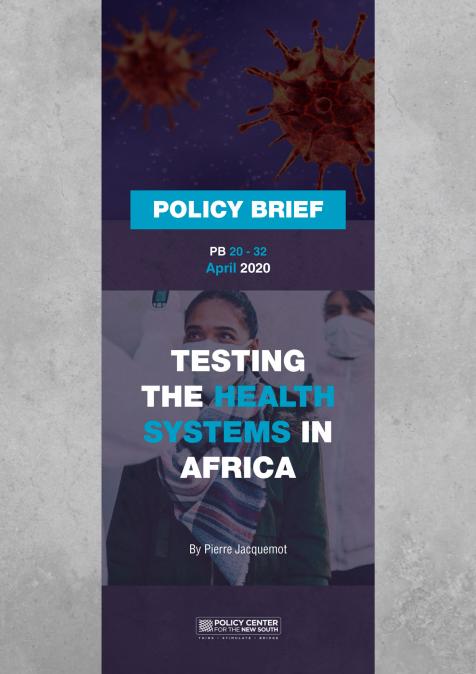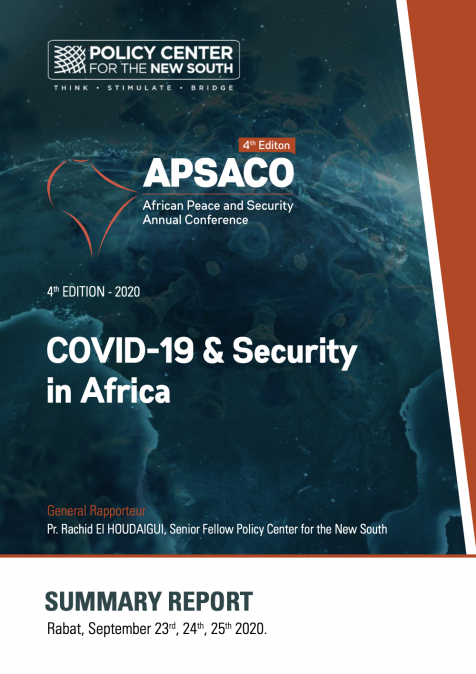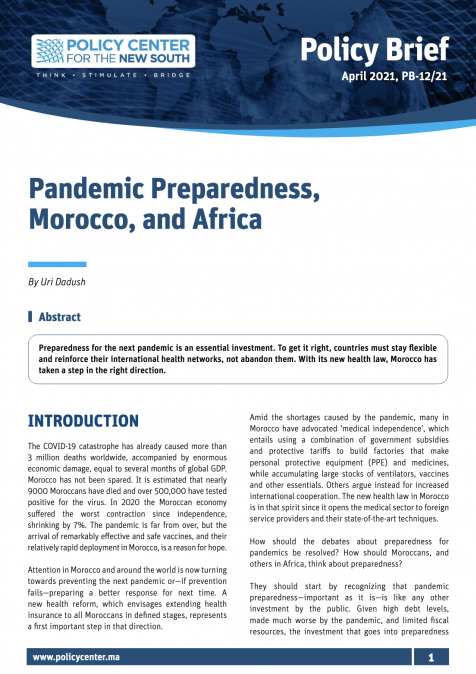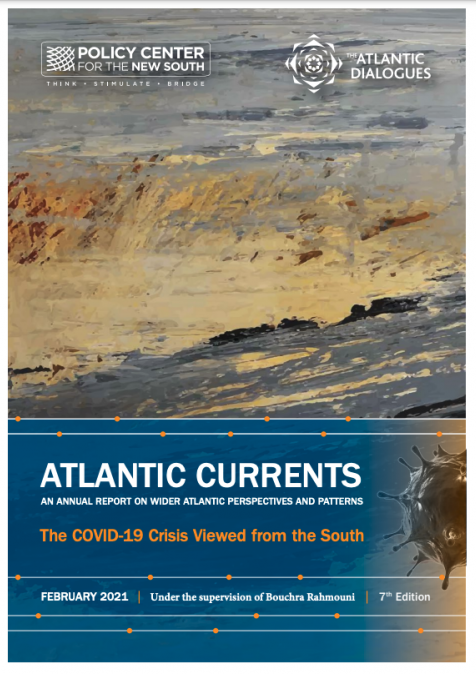Publications /
Policy Brief
It is still too early to assess the extent of the Coronavirus pandemic in Africa, but everything seems to suggest that it will have a major impact on already vulnerable health systems – from prevention to the management of patients. Various forms of resilience are being tested with pejorative effects, especially against the very poor, who are less prepared to observe the protection measures and more exposed in their daily lives. However, lessons can be learned from past epidemic experiences and possible solutions to the crisis can already be identified.
As Covid-19 has gained a foothold throughout Africa, it may become one of its major public health challenges. The Economic Commission for Africa (ECA, 2020) estimates that more than 300,000 Africans could lose their lives as a result of the pandemic. Its impact on the continent’s already struggling economies could plunge nearly 27 million people into extreme poverty. This tragic prediction certainly deserves to be taken with caution, and will be reassessed as the pandemic evolves in the specific context of the countries of the continent. Yet, the measures taken under the state of health emergency (information, curfew, lockdown, barrier precautions, and restrictions on mobility) are facing particular difficulties in implementation. Half of the urban population is concentrated in precarious, overcrowded and poorly equipped neighborhoods, and only a third of households have access to handwashing facilities. Most importantly, however, there is concern about the fragility of health care systems.










